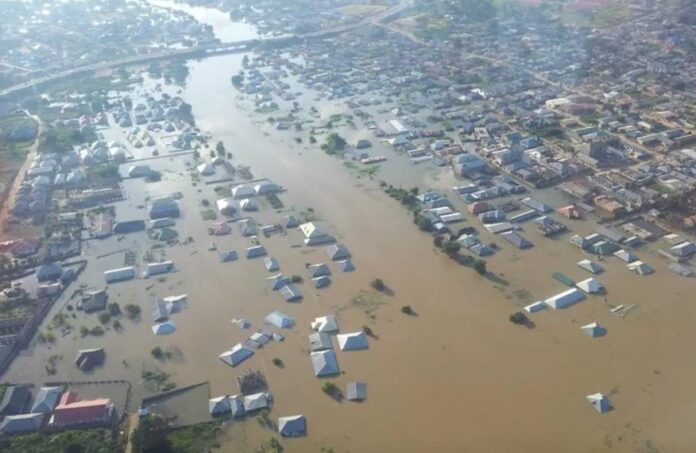IMF warns of flood worsening food insecurity, seeks early warning system
By Jeph Ajobaju, Chief Copy Editor
Flooding in several states North and South will worsen food insecurity and further raise food prices in Nigeria, unless urgent steps are taken to mitigate the incidents, the International Monetary Fund (IMF) has warned.
To mitigate the impact of floods, the IMF urged Nigeria and other countries prone to the menace in Africa to invest in early warning system technology and provide social assistance to people.
IMF African Department official Mai Farid raised the alarm at the analytical corner on “Climate Change and Food Insecurity in Sub-Saharan Africa” where he cited the economic impact of floods on Benue, Kogi, Anambra, Bayelsa, and other states.
“We are very cognizant of the challenge that the flood of that magnitude and how it affected Nigeria in neighbouring countries. We also recognise Chad and Cameroon have also been hit,” he said.
“And absolutely, you’re totally right in terms of the supply of agricultural production, it is going to drop which will put even further pressure on prices.
“And in addition, the floods have affected some of the transportation networks which means makes it even harder for food to transfer into the country or even out in any essence storage.”
______________________________________________________________
Related articles:
Flood: Diri earmarks N450m to care for displaced persons
Houses submerged, property destroyed as flood wreaks havoc in Makurdi
Flood kills 26 in Kano, displaces 2,000 in Adamawa. Destroys 395 farms
_________________________________________________________________
Investment in early warning system technology
Farid reiterated Nigeria and other countries in Sub Saharan Africa are the most food insecure in a region that is also the most vulnerable to climate change and yet the least prepared to pay, according to reporting by Vanguard.
He stressed the need for governments to invest in early warning system technology and infrastructure that is climate resilient.
IMF Asia and Pacific Department official John Spray also stressed the need to provide social assistance to moderate the impact of floods and food insecurity on the people.
His words: “One thing our model tells us is that there can be permanent effects and short term shocks. And so getting people to food and cash early, getting that social assistance out to people can have a really big impact in the long run.
“So there’s a kind of urgency where we think it’s important that when there is a shock that people can get access to food. They don’t have to take more drastic measures, pulling children out of school or sacrificing other assets.”













